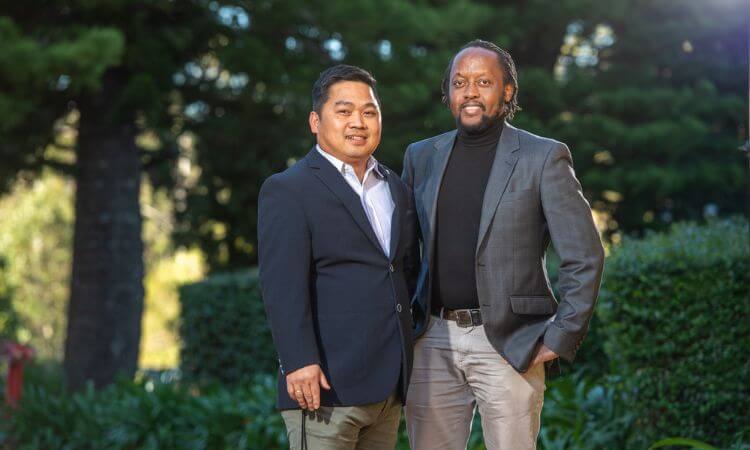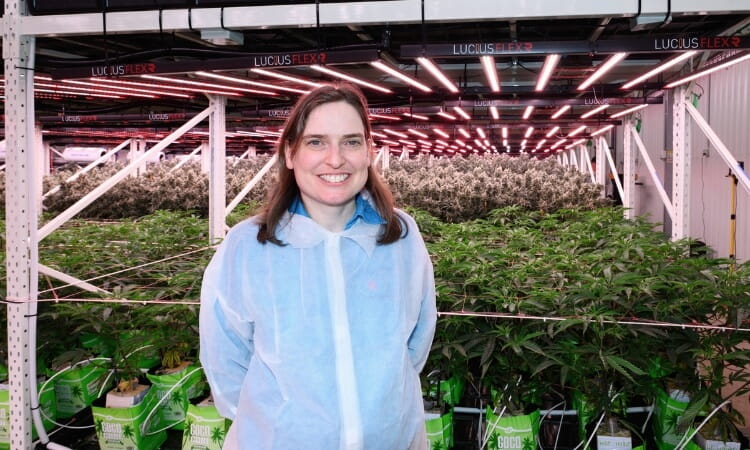A team of University of Southern Queensland researchers have joined a national partnership helping to advance the country’s agricultural sector through innovative application of digital technology.
The Agricultural Research Federation (AgReFed) Platform is an Australian program that aims to improve the discoverability of trusted, reusable, and analysis-ready agri-data from across Australia.
Everyone from landholders to researchers and industry professionals can use the open-source platform to perform repeatable analysis, as well as draw on new and existing data to produce novel insights across multiple agricultural sectors.
The project, led by Federation University Australia and supported by the Australian Research Data Commons (ARDC), has united several universities and industry partners under a shared goal: to make agricultural data more findable, accessible, interoperable, and reusable (FAIR).
“AgReFed Platform is providing tools and workflows to support agricultural researchers and to change the way agriculture research is conducted across Australia,” Director Centre for eResearch and Digital Innovation (Federation Uni) Helen Thompson said.
Working within the diverse team of experts are University of Southern Queensland Senior Digital Research Advisor Dr Francis Gacenga and Computational Agro-Econometrist Dr Duc-Anh An-Vo, who have helped to develop the platform.
“Agricultural research is not homogenous - there are many different fields, such as those provided at UniSQ, including farming systems, climatology and plant and soil science, with each using different techniques and producing different data types,” Dr Gacenga said.
“There is also the challenge of sharing agricultural datasets without worrying about licensing commitments.
“AgReFed provides a platform where users can share and analyse their datasets and research methodologies within a controlled system, helping to improve the quality and impact of their work and others.
“AgReFed provides access to infrastructure, storage, and automation required to get the most out of aggregated data.
“This can save Ag industry stakeholders significant time and effort.
“We have created the platform’s foundation, and over time, we’re hoping to build something that will revolutionise agricultural data management practices in Australia.”
The system is based on a federated cloud model, where contributors can share their work to a server while still retaining data ownership.
In one application, the platform is used to integrate biological and yield data with spatial-temporal-environmental, and sensor data to improve discoverability and output.
The platform also provides access to coding scripts, allowing users to run scripts that sort through data to produce a usable output, saving them from having to clean and manipulate the data manually.
“For example, an agricultural researcher can log into the system and, with no experience in coding, select a combination of datasets and run scripted code to generate useful results such as find the best sowing time for a variety of grain” Dr Gacenga said.
“Individuals can use this system in many ways, including to inform policymaking, improve innovation and to promote collaboration,” Dr An-Vo said.
“There is no limit to its applications – wherever there is data, there is the ability to unlock greater potential.”
AgReFed Council Chair Dr Nicolas Taylor (University of Western Australia) said UniSQ’s contribution to the AgReFed platform would have wide-ranging impacts.
“It empowers researchers to access and explore reliable, reusable datasets, workflows, and models in agriculture,” Dr Taylor said.
“This fosters data reuse and encourages collaborative efforts across different disciplines, leading to innovative research discoveries and their practical implementation in policy, reporting, and on-ground decision-making processes.”
Learn more about AgReFed.
Please register to AgReFed platform seminar series and workshops to learn how to access and use the platform.
AgReFed received co-investment from the Australian Research Data Commons (ARDC). The ARDC is supported by the Australian Government through the National Collaborative Research Infrastructure Strategy (NCRIS).



